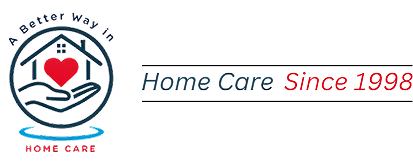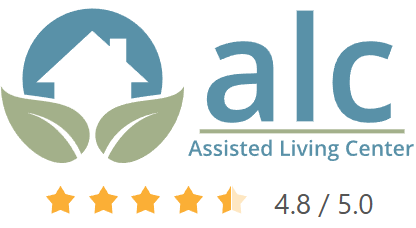Experts agree that regular oral hygiene in seniors is one of the most important health aspects. Unfortunately, many elderly people do not take care of their teeth and gums as they should, which can lead to a host of problems. In this blog post, we’ll discuss some ways caregivers can promote oral hygiene in senior care.
Let’s discuss why it’s important to visit the dentist in old age and what are the consequences of poor oral hygiene. Whether you’re looking to hire professional home care in West Los Angeles, or caring of your loved one yourself, keep reading to learn more!

What is oral hygiene in aged care?
When it comes to regular oral hygiene, there’s no big difference between age groups. This usually involves the following:
- Brushing teeth at least twice a day with a fluoride toothpaste
- Flossing every day
- Seeing the dentist regularly (at least once every six months)
However, there are some points that are unique for dental and oral hygiene in seniors, so caregivers should keep them in mind:
- There may be a need for more than two brushings per day, due to receding gum tissue exposed root canals, or similar issues.
- Some seniors experience difficulties with brushing teeth properly due to arthritis or poor vision. In these cases, it is important for caregivers to assist in brushing teeth correctly at least twice a day.
- Some medications can cause dry mouth, which can lead to increased tooth decay. It is important to discuss any medications with the elderly person’s dentist to see if there are ways to combat this side effect.
- Memory loss is another factor that can cause complications, especially if regular brushing and flossing isn’t a part of a strong routine.
- Poor nutrition, smoking, and other unhealthy habits can further hinder dental health
- Old crowns, fillings, or dental implants need to be checked and replaced after a while
- It is important for caregivers to take seniors to the dentist regularly, as many dental problems can be easily treated if caught early.
Why is oral hygiene important in the elderly?

It goes without saying that maintaining good oral hygiene is essential for everyone, but it’s especially important for seniors. Studies have shown that poor oral health is directly and indirectly linked to a variety of problems, including:
- dental cavities
- gum disease
- cardiovascular issues
- stroke
- some types of cancer
- diabetes
- osteoporosis
- respiratory infections
- rheumatoid arthritis
Did you know that tooth decay and gum disease are the two most common chronic diseases in seniors? In fact, almost 90% of all adults over the age of 65 have had some form of tooth decay. This is why it’s so important for caregivers to promote oral hygiene in senior care.
Now, how can you promote dental and oral health to your elderly patient or loved one? Here are a couple of ideas that caregivers can implement:
- Develop strong routines that involve oral hygiene as a part of daily grooming
- Encourage the elderly person to brush their teeth at least twice a day, in the morning and at night. If they are having difficulty brushing properly due to impaired movement, offer to help them.
- Make sure they are using fluoride-based toothpaste.
- Help them floss their teeth every day.
- Encourage them to eat healthy foods and drink plenty of water.
- Talk to their dentist or doctor about ways to combat side effects of some medication that could cause dry mouth, or interfere with substances used in the treatment.
How often should seniors have their teeth cleaned?

The American Dental Association recommends visiting the dentist at least twice a year, and this applies to people of all ages. This allows for tartar removal and cleaning to prevent complications. However, some seniors may require more visits than that, especially if they are experiencing severe pain, chronic discomfort, or exhibiting any other indications that would necessitate an emergency dental visit.
As a caregiver, you shouldn’t ignore signs that your senior is in pain. You may also need to encourage them to talk about their current problem. If your senior has hearing loss or impairment, you’ll need to set up an appointment for them. Also, your duty will be to drive them to the dentist’s office.
Who can we count on for qualified home care in West Los Angeles and beyond?
Whether your elderly loved ones are living in Little Ethiopia or anywhere else in West LA, you can rely on A Better Way in Home Care. We have ample experience with matching the most reliable and qualified Caregivers with local families. The experts we work with can assist with a number of daily tasks, and help your loved one lead a healthy, pleasant, and fulfilling life while aging in place.
With their help, you’ll also save precious time and energy for other family and career commitments. Feel free to contact us today to discuss your needs and requirements!








